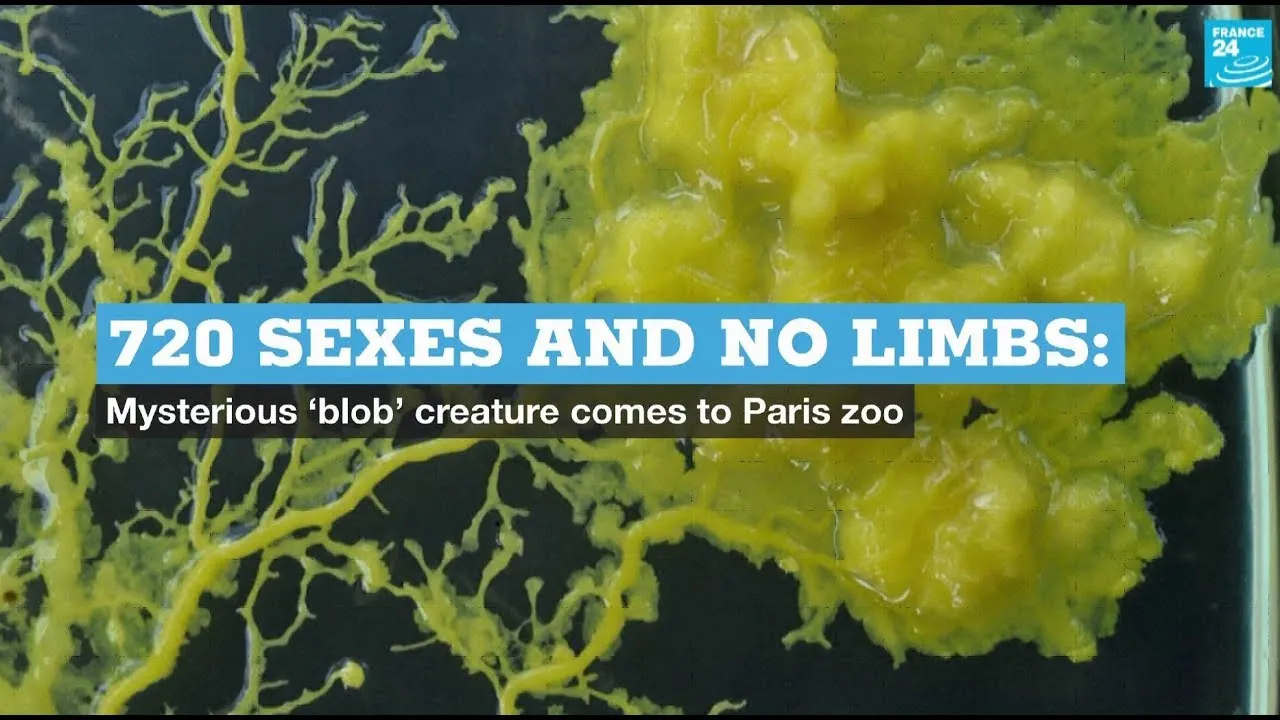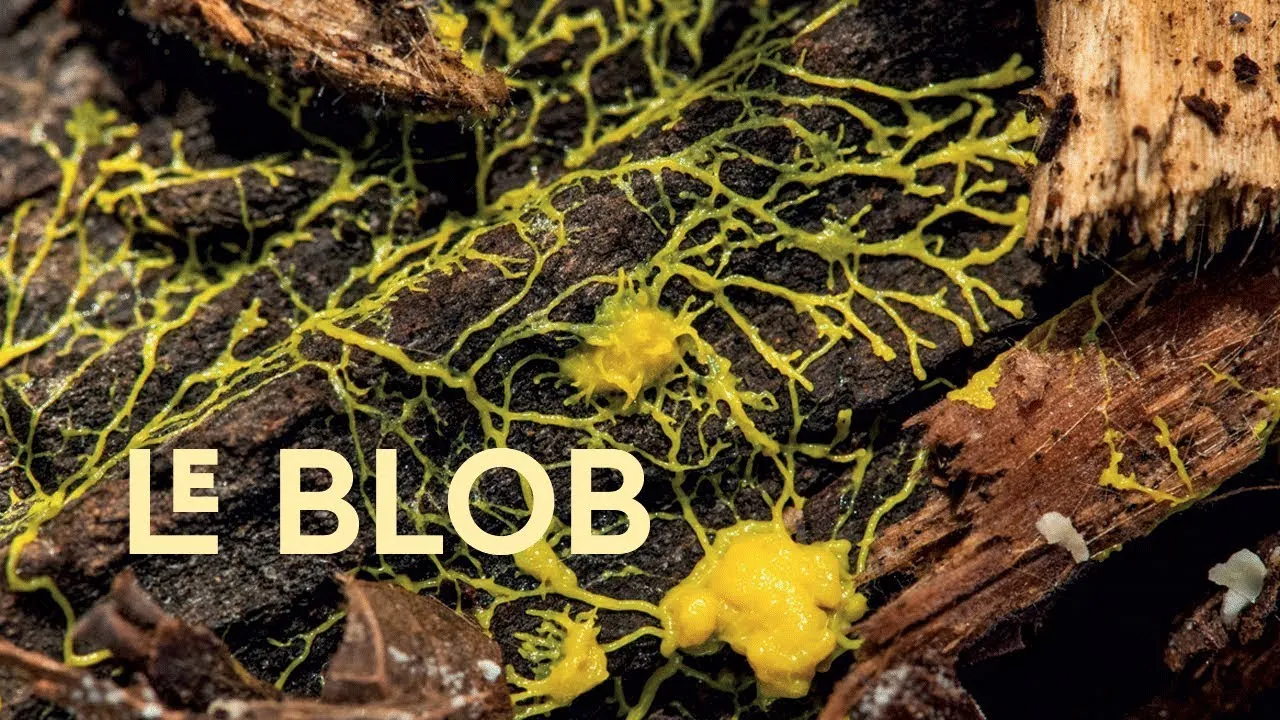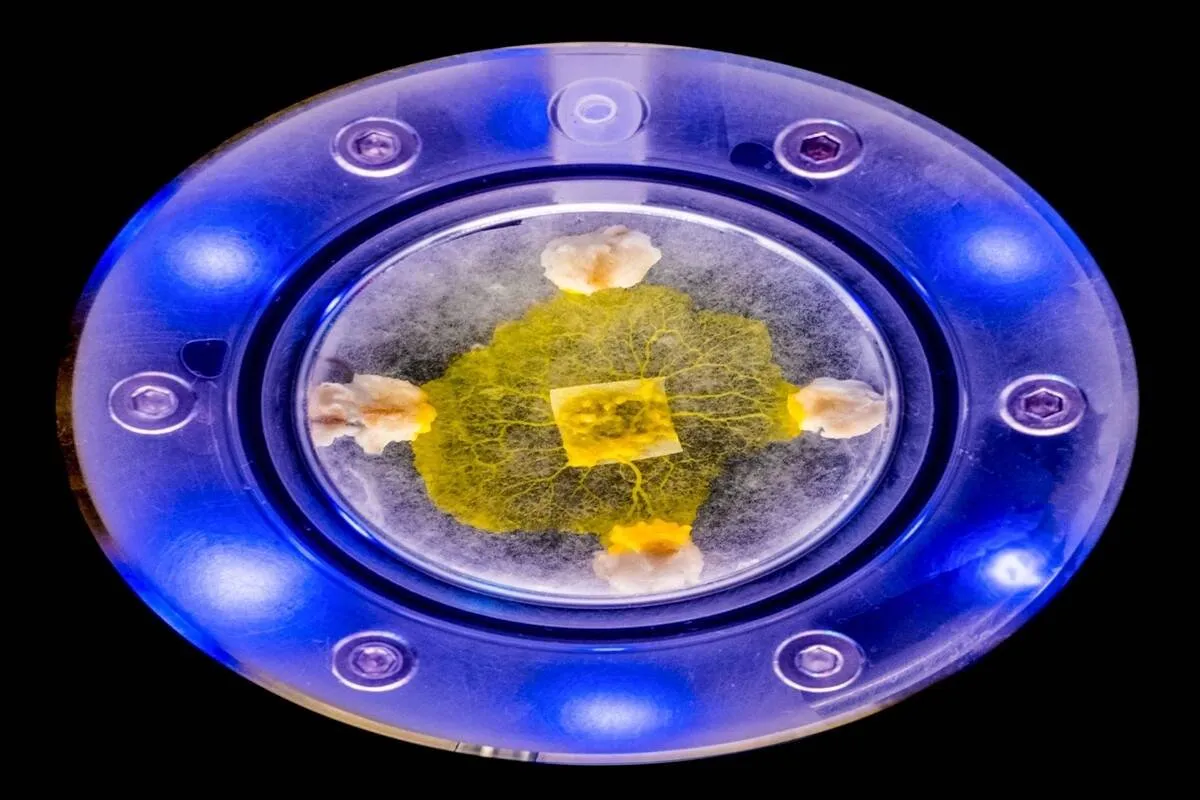
Source
Before telling you about the life and miracles of this microorganism in space, let's talk a little about Blob, an strange unicelular microorganism scientifically called physarum polycephalum (Blob for friends) that fascinates biologists because it is not an animal or a plant not a fungus but a fluffy yellow mass.
Antes de contaros la vida y milagros de este microorganismo en el espacio vamos a hablar un poco sobre Blob, este extraño microorganismo llamado physarum polycephalum (Blob para los amigos) trae fascinados a los biólogos pues no se trata de un animal, ni de un vegetal ni de un hongo sino de de una masa esponjosa de color amarillo.
The bug in question seems like a riddle, it is a unicellular bug that does not have legs but can move, does not have a mouth but eats and does not have a brain but has a surprising ability to learn and can also dehydrate at will, remaining in a kind of period of latency but without dying.
El bicho en cuestión parece una adivinanza, se trata de un bicho unicelular que no tienen piernas pero puede desplazarse, no tiene boca pero come y no tiene cerebro pero posee una sorprendente capacidad de aprender y ademas puede deshidratarse a voluntad quedando en una especie de periode de latencia pero sin llegar a morir.

Source
Precisely taking advantage of this state of dehydration called sclerotia, scientists intend to take some of these dehydrated organisms into space next September, to later revive them on the ISS and see how they behave in microgravity environments 400 km from Earth.
Precisamente aprovechando este estado de deshidratación llamado esclerocio los científicos pretenden llevar al espacio en el próximo mes de septiembre algunos de estos organismos deshidratados, para posteriormente revivirlos en la ISS y ver como se comportan en entornos de microgravedad a 400 km de la Tierra.
At the same time that the microorganism is rehydrated in space, samples of the same strain of the organism collected on land have been sent to 4,500 students from schools in France who will also be rehydrated to be able to compare their behavior with that of their relative in space and observe the differences in the two environments.
Al mismo tiempo que el microorganismo se rehidrata en el espacio se han enviado muestras de la misma cepa del organismo recogidas en tierra a 4.500 alumnos de colegios de Francia que también será rehidratados para poder comparar su comportamiento con el de su pariente en el espacio y observar las diferencias en los dos entornos.

Source
It seems that this organism appeared on Earth 500,000,000 years ago and until the 90s it was considered a fungus but later scientists passed it on to the group of amoebas, because apparently this microorganism contradicts scientific knowledge because, instead dividing in two like all cells do, this bug never divides and grows from the same cell.
Parece ser que este organismo apareció en la Tierra hace 500.000.000 de años y hasta los años 90 se le consideraba un hongo pero posteriormente los científicos lo pasaron al grupo de las amebas, pues según parece este microorganismo contradice los conocimientos científicos pues, en lugar de dividirse en dos como hacen todas las células este bicho nunca se divide y va creciendo a partir de la misma célula.
But the most surprising fact of all, from my point of view, is that this microorganism does not have a brain but it has 720 different sexes and if it is already difficult to handle two sexes even with a brain, I do not even want to think about the gender problems that they may have to ensure equality among the sexes.
Pero el dato más sorprendente de todos, bajo mi punto de vista, es que este microorganismo no tiene cerebro pero tiene 720 sexos diferentes y si ya es complicado manejar dos sexos aún con cerebro, no quiero ni pensar los problemas de género que puedan tener las bichos que tengan que velar por la igualdad entre los sexos.
More information/Más información
https://today.in-24.com/technology/210616.html
https://www.popularmechanics.com/about/a29502834/ancient-life-form-blob/